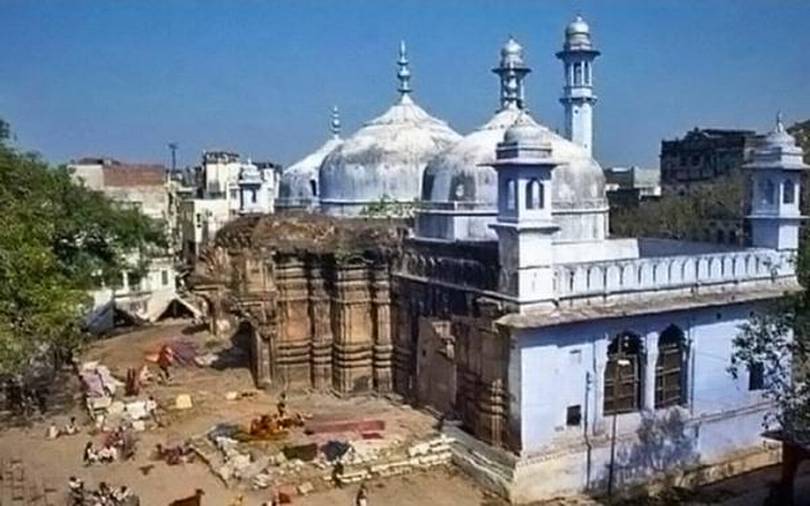The Modi government is silently executing the plan to reclaim the Kashi Vishwanath Temple-Gyanvapi Masjid site for the Hindus. As per a report by Hindustan Times, “The Gyanvapi mosque administration in the Kashi Vishwanath Temple-Gyanvapi Masjid case handed over 1,000 square feet of land for the Kashi Vishwanath corridor in exchange for 1,000 square feet of land that the temple authorities have handed over to the mosque administration at a distance from the Gyanvapi mosque and Kashi Vishwanath.”
The mosque administration said that it handed over the land for the Kashi Vishwanath Corridor that was inaugurated by Prime Minister Modi in 2019 with the aim of beautification of the temple and surrounding areas. The exchange of land means a formula similar to that of the SC verdict on Ayodhya, in which the court gave the same acres of land at a distant site, is being adopted by the Modi government to reclaim the Kashi Vishwanath Temple for Hindus.
Chants of “Ayodhya toh bas jhaanki hai, Kashi Mathura abhi baaki hai” had gained immense popularity during the Ayodhya Ram Janambhoomi movement.
The idea was that while a grand Ram Temple is a sensitive issue close to the heart of every Hindu devotee, a number of other prominent temples such as the Kashi Vishwanath in Varanasi, the Krishna temple in Mathura, the Adinath temple in Malda, the Kali temple in Srinagar, were also destroyed during the Islamic invasion.
There has been a brewing sentiment to restore these temples into their ancient glory and after the resolution of the Ayodhya Ram Janambhoomi dispute, we seem to be moving in that direction.
Previously an application seeking archaeological excavation of the Kashi Vishwanath Temple-Gyanvapi Mosque dispute was moved before the Court in the month of December last year. The applicant contended that there still exists a ‘shivlingam’ of Lord Vishweshwarnath (Lord Shiva) on the disputed site.
Today, there is a Kashi Vishwanath Temple and the Gyanvapi Mosque adjoins the Temple, but according to Hindu belief, the original jyotirlinga is what has now been built into the Gyanvapi Mosque. The Hindi devotees, therefore, want an excavation that will affirm their belief and claim to the disputed site.
The opposing Muslim side had however opposed the plea for an Archaeological Survey. They argued that a stay on excavation should continue to be in force, and not vacated.
Unlike in Ayodhya, the mosque in Kashi visibly infringes upon what appears to be a temple-like structure. Although the Ram Janmabhoomi victory was a very difficult one for Hindus, the reclamation of Kashi Vishwanath, or in the immediate future, at least proving the fact that the Gyanvapi Mosque infringes upon Hindu temple land will not be extraordinarily tedious.
Given the fact that the claim of Hindus is very strong as far as legality is concerned and there is a government that is willing to support its claims, the whole site of the Kashi Vishwanath Temple can be awarded to Hindus very soon.
